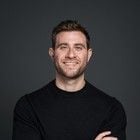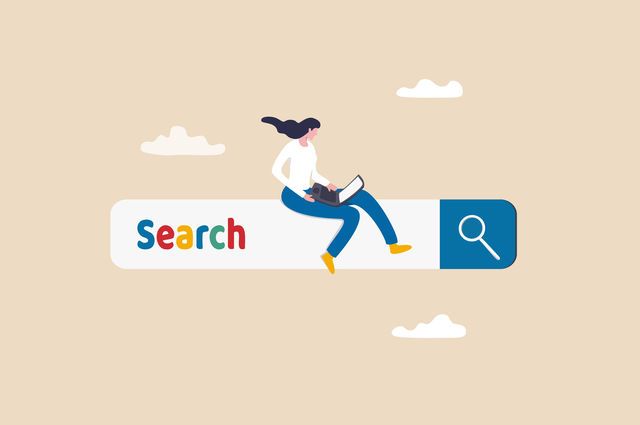Is It the End of Search Advertising as We Know It?
10 experts shared their view
As generative AI becomes more integrated into search engines, the traditional cost-per-click advertising model we've relied on for decades may be on the brink of obsolescence. Perplexity's recent decision to adopt a cost-per-mille (CPM) model instead of the usual CPC approach for its advertising platform seems to point in that direction.
Is this the beginning of the end for click-based advertising models in search? Or is it simply a natural evolution, adapting to a landscape where users no longer need to click through to external sites to find the information they seek?
And how should we adapt to this change?
Search based ads are going to change, a lot. They're great for bottom of the funnel marketing. The low hanging fruit. But they're not great for discovery. However with AI there's a possible mix of intent and discovery which could be the most powerful of both world. So I think this will change the dynamics. I definitely think it will change the whole adwords dynamic.
These are interesting times, indeed, when it comes to search. Specially when it comes to itineraries and travel recommendations suggested by GenAI tools such as ChatGPT, Gemini, Perplexity or Claude.
Traditionnally, when you asked Google for accommodations in New York City, you would get a listing with a bunch of hotels, and you'd have to use filters in order to get anything interesting. Search advertising ensured you'd show up among the top 5 results.
Now, when doing the same query with GenAI tools, you may get 3-4 suggestions, at most, depending on the prompts. How can a hotel ensure to be amongst these recommended few?
Will search results become product placement, such as what we've been seeing in Hollywood movies and Netflix productions for the past two decades? This questions the whole "neutrality" of these tools, but then again it's big business for Google, Microsoft and others!
Still too early to tell, though. Travel brands need to keep focusing on quality content across their owned media and make sure they maintain and increase their relationship marketing efforts. As for SEO and social content, in particular UGC, it will remain important but this will shift sooner rather than later!
Perplexity's shift to CPM is validating for luxury and lifestyle hospitality marketers. Attribution broke long ago for high-consideration, high-value travel purchases like hotels, resorts, and cruises. 7-14 day click windows work for a $20 t-shirt (no dependencies), not a $1,000/night hotel room (plenty of dependencies like booking flights, etc.). Paying $1 - 5 for a click is silly, given that hotels know that most people clicking are likely weeks or months away from making a purchase decision.
In the crucial run-up to the booking, multiple brand impressions, like coverage in top-tier media outlets, are vital, as is getting views of key brand messages, including trusted content snippets pulled by Perplexity, OpenAI, and others. Perplexity's decision is yet another that will guide the industry towards investing more in upper-funnel, brand-building marketing (best measured by CPM). This marketing reaches a broader swath of a hotel's potential guests—and does so in a less brand-deleterious, cost-prohibitive way than that of a CPC ad model, which continues to yield diminishing returns while only targeting a small segment of people ready to book "right now."
Even with CPC, meaningful attribution has always been a challenge. Simply assigning a sale to its penultimate click has always been acknowledged as being severely flawed, with the result that online marketers have developed more sophisticated ways to measure which interactions influenced the customer's purchase decision.
As a result, going back to CPM would be a mistake, simply because advertisers hate it as they cannot establish whether anyone actually saw the message in question and whether it had any influnce on the subsequent sale. As search engine evolve how they service their traffic, they will also need to think deeply about and monetisation methods, with progression to cost-per-acquisition, rather than regression to cost-per-mille, the more likely scenario.
Perplexity AI's move signals a shift in digital marketing. For example, AI-generated responses will streamline users' search process, reducing the need to check multiple websites or sources and providing quicker, more accurate answers to their inquiries. People will rely more on AI-generated responses in their searches.
Meanwhile, I expect cost-per-mille and cost-per-click will co-exist for some time because transformational changes do not happen overnight. Now, I highly encourage marketers to get ahead of the new changes in the marketing landscape by focusing on improving their content strategy. Marketers' role in this shift is crucial --- we must publish high-quality and engaging content on our website. This is the key to enabling AI to use the content we created to generate responses and list our website as its source of information.
Google has never had a first-mover advantage. Even so, Google has always been able to smash all of its competitors who had enjoyed first-mover advantage. The same applies to generative AI engines like ChatGPT, Claude, etc.
By incorporating its Gemini genAI engine into its search, Google has provided an elegant embedded genAI solution to its 2.5 billion monthly unique users. Compare this to ChatGPT's 180.5 million monthly users
Today Google controls 91.54% of the Global Search Engine Market. Less than 41.5% of users click on links in the SERPs (search engine results pages) vs 58.5% who don't (so called zero-click category). So your Google Ads and Google Hotel Ads already act mostly as display ads vs CPC (cost-per-click) ads.
I am convinced that if the zero-click share increases to above 2/3 in the SERPs, Google will introduce CPM (cost per Mille) fee format.
In the mean time, don't forget to invest adequately in your Google marketing: If you have well budgeted, well-optimized campaigns, Google will generate 55%-65% of your website bookings: 30% from SEO, 20%-25% from paid search, 5%-10% from metasearch (Google Hotel Ads) at blended ROAS (Return in Ad Spend) of at least 1500% (15x).
Perplexity's move hints at what's to come in the broader search engine ecosystem.
The CPC model has long been the cornerstone of search engine advertising, as it operates on a simple premise: advertisers pay when users click on their ad, driving traffic to their website. This model has thrived in a landscape where search results were primarily collections of links. However, generative/hybrid search engines provide direct answers WITHIN the SERPs. This reduces the need for users to click through to external sites to almost zero. As a result, click-through rates on ads and source links are likely to decline, and the effectiveness of the CPC model, which relies on these clicks, is at serious risk.
CPM model charges advertisers based on the number of impressions an ad receives, regardless of whether it is clicked. This makes it a more suitable approach in an environment where direct engagement with external links drops. It also allows advertisers to capitalize on brand visibility, even when users do not click on ads.
The key will be finding ways to monetize the attention economy in a landscape where clicks are no longer the primary success metric after half a century of search engine advertising.
The rise of "clickless searches," accelerated by generative AI, is challenging the traditional pay-per-click (PPC) model that search marketers have long relied on. While features like People Also Ask and Featured Snippets have already impacted organic click-through rates, the integration of AI is likely to further reduce the need for clicks on any search results—paid or organic.
As the search landscape evolves to match user behavior, advertisers should anticipate a gradual shift away from CPC models. To adapt, marketing strategies should prioritize creating high-quality content that aligns with user intent, particularly for upper-funnel marketing efforts. For lower-funnel tactics, it will be important to focus on strong calls to action and to experiment with alternative pricing models, such as CPM or CPA.
To navigate this shifting environment, staying informed on industry trends and being open to testing new strategies is crucial. Advertisers can explore opportunities to leverage AI-powered tools to generate more engaging content, personalize ad targeting, and analyze user behavior. Additionally, consider optimizing for voice search, as it is becoming increasingly popular and often results in clickless searches. By proactively adapting to these changes, advertisers can position themselves for success in the evolving search landscape.
It's definitely not the end of search advertising, but I do see several new channels added to traditional search. Using services like Gemini or Perplexity to do product searches will gain traction over time for sure.
But i think the biggest challenge to traditional search over time will be through on-device GAI agents like Apple Intelligence. I believe that many consumers who, today, have to: (1) open their phone, (2) bring up a browser, (3) ask for product information, (4) sift through a raft of paid and organic links, and then (5) go to the vendor site to purchase will instead prefer to pick up their phone and say something like "Hey Siri, find me the highest rated desktop speakers for under $200" and see just the 1 or 2 best options in a neatly formatted display. Those options will have been chosen for them partly by the instructions (best rated and under $200) plus a raft of personal information Siri's gathered about them. At some point (sooner than you might think--see OpenAI's announcement about their new o1 model, code named Strawberry) they will be able to say "buy option 1 and put it on my Amex.
It"s entirely possible that Perplexity"s pitch of using CPM advertising alongside its "answer engine" is a sign of things to come. What"s also true is that Perplexity is tiny in relation to Google and that they"re looking to differentiate themselves from the market leader. Google gets 1,400 times more traffic than Perplexity does. And clicks on CPC ads delivered roughly 57% of Google"s $84 billion in revenue last quarter alone. Google"s not going to kill the goose that lays its golden egg without a fight.
Between paid search, organic search, and metasearch, most hotels usually get a significant share of business from Google. Anything that hurts Google could also hurt you. As I"ve said many times, smart marketers should be looking for ways to diversify traffic and revenues just in case Google"s dominance should falter. I also think that it"s going to be some time before the golden goose of CPC ads goes the way of the dodo.










